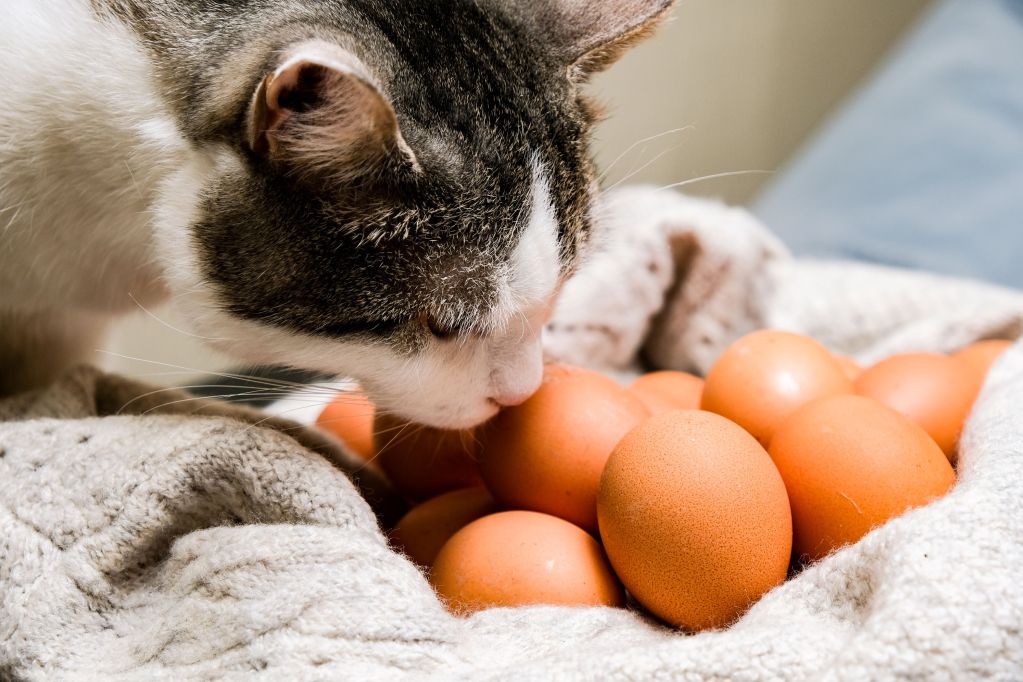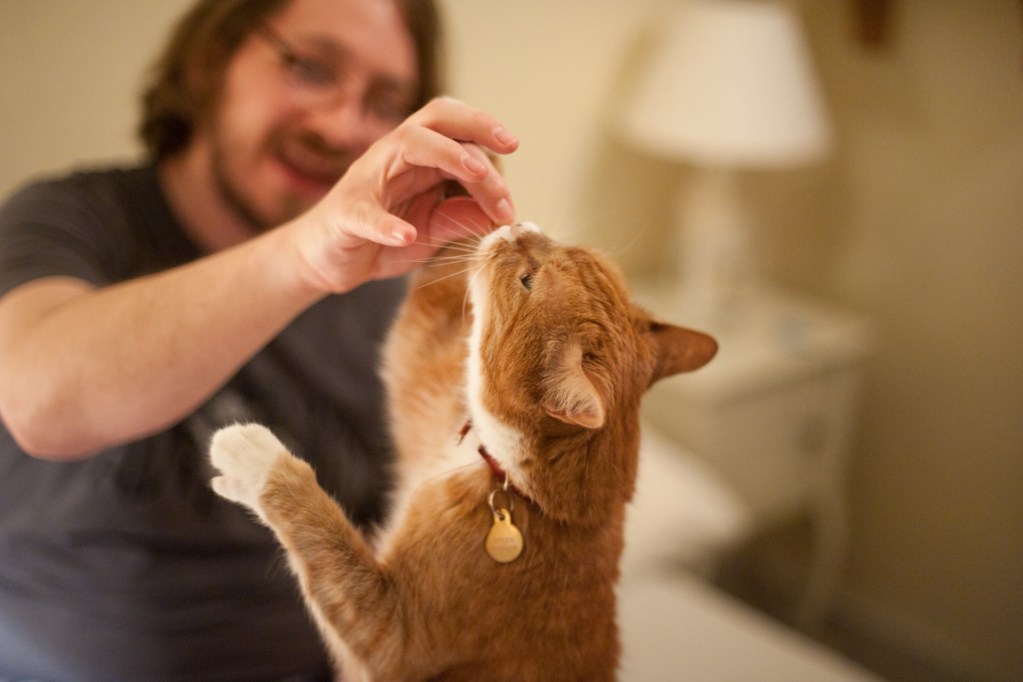
Cats love their dinner — if you don’t produce it right on time, you can bet you’ll be serenaded with yowls until the meal appears. As with all of us, your pet will benefit from a strict meal plan for the majority of their food, but what about the occasional treat? It’s fine, even encouraged to feed your kitty a snack now and then. We all know cats shouldn’t really have milk, but can cats eat eggs? Yes, with some caveats.
Can cats eat eggs?

We want to start with the basics: Cats really only eat meat, though their food might have other things sprinkled in to ensure a fully balanced and nutritious diet. Fortunately for you and your feline, eggs are high in protein and can be a perfectly healthy addition to their nourishment routine. Eggs include healthy fats, vitamins, and protein — all good things for a mouser.
However, the important part here is to consider an egg as a special treat since it won’t satisfy all of their nutritional needs like kibble or wet food will. When calculating the right amount of egg to give, first think about your animal’s weight. “A moderately active 10-pound cat needs an average of 250 calories per day,” explained Purina Nutritionist Karina Carbo-Johnson, MS to Purina. “Eggs should be considered as treats, and therefore, be no more than 10% of your cat’s daily calories. A large egg contains about 70 calories, and therefore, your cat should receive only a small amount of egg.”
How should you prepare an egg for your cat?

If you only remember one thing, let it be this: You should not feed your pet raw egg. Eggs can contain salmonella, which might make your cat sick and can even spread to you. Consider boiling or poaching the surprise before delivering it to your furry friend.
While you want it to cook properly, your cat can’t have salt, spices, or oil added to the egg, which is why using water to cook works nicely. Start by giving your beastie a small piece of your hard-boiled egg while you’re already eating one and see if they like it, so you don’t waste a perfectly good morsel on them. Once you have confirmed that they enjoy eggs, you can experiment with different preparation methods.
Adult cats should be able to eat an egg sometimes with no problem, though we don’t recommend them in kittens and certainly not newborns that need special food. A periodic egg could turn into a nice treat that the two of you share on the weekend or maybe after a vet visit or other stressful endeavor. Provided it doesn’t replace her normal food, eggs represent a perfectly yummy bite for your cat to nibble on.



